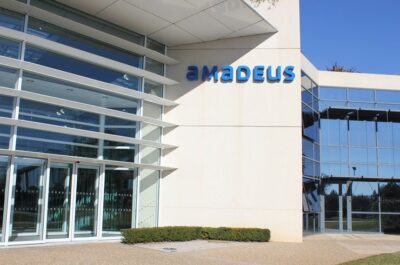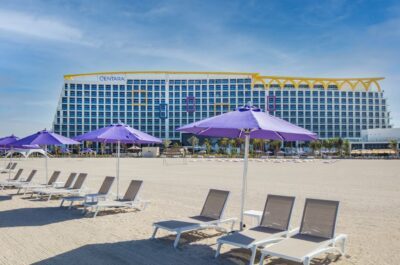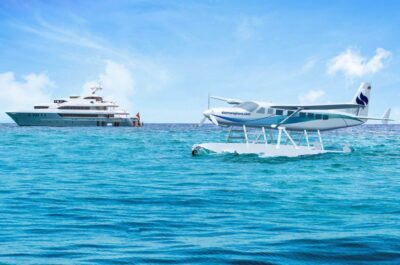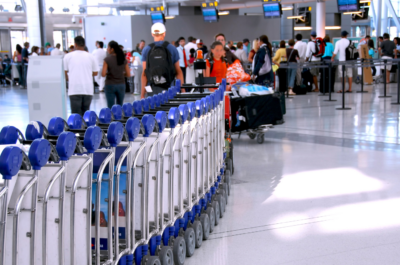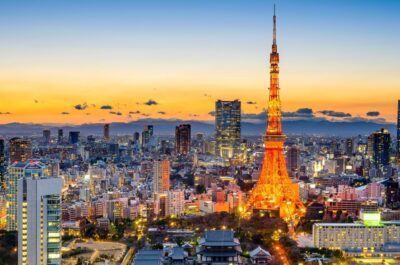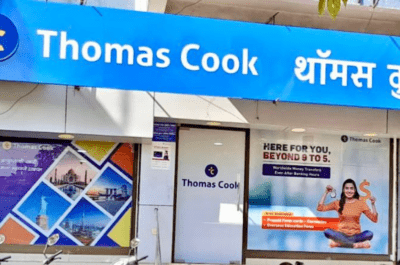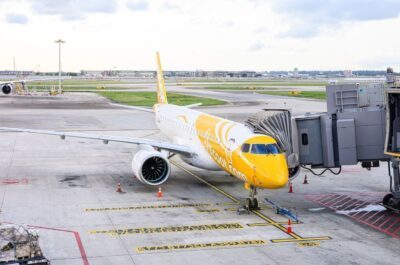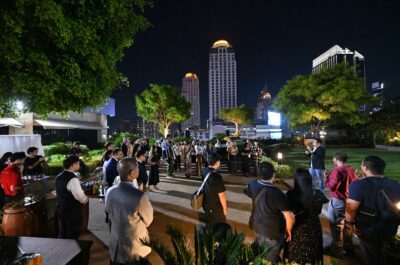…
Evaluation from a general perspective
Given the uncertainty generated in the tourist sector following the tragic events of March 11 in Madrid, Exceltur has carried out an in-depth analysis of the potential repercussions those events may have had on the business activities of companies in the tourist sub sectors, and on the various Spanish holiday destinations during these recent weeks, as well as those which might arise in the coming months and during the summer season for 2004.
To address this requirement, Exceltur made a survey between 15 March and 8 April 2004 with a specific questionnaire based on the traditional methods of analysis of business confidence in order to evaluate the possible impact on sales of the events of March 11,. The results are presented below and compared with the statistical information published to date by various official Spanish bodies, and contrasted with the development of tourist company share prices on the stock exchange which, additionally, show how analysts have valued and in turn adjusted the effects of March 11 and how they perceived at the time the impact of September 11.
As a result of this analysis it may be confirmed that the Spanish tourist industry has, for the moment, managed to elude far more successfully than was expected the effects of the events of March 11, particularly when compared with results of other tourist destinations which in the last three years (New York, Bali, Kenya, Djerba, Moscow) have suffered similar disasters.
The general opinion of Spanish tourist operators shows a short-term limited impact on Spanish tourist companies overall. According to the survey carried out by Exceltur to this end covering approximately 1200 tourist businesses and establishments among various sub sectors, only 34.4% had noted an effect on their sales during the days following the attack, while the remaining 65.6% did not notice any effects and carried on their activities as normal.

In a similar positive vein, for almost half of the 34% of companies surveyed whose sales were affected by the events of March 11, the impact was less than 5%, while scarcely a quarter of them suffered losses of sales of more than 10%.
Nevertheless it would seem that the effects were concentrated exclusively on the city of Madrid and were only notional in destinations with a greater presence of long-distance tourists, which have gradually been overcome in recent weeks. In the north and interior of Spain, and in particular in tourist areas of the Mediterranean coast and the Balearic and Canary Islands, which specialise in sun and beach holidays, the impact has been negligible.
Therefore, while in Madrid in the short term 82% of tourist operators surveyed suffered a fall in sales –– and in 30,1% of cases this was greater than 30% -, in the two destinations which annually combine to capture 50% of the total international tourist market in Spain, namely the Balearics and the Canaries, the short- term impact of March 11 on the tourist companies surveyed scarcely affected by 8,2% and 9,8%, their respective sales in the initial days following the attack.

At the level of consolidated results for the first quarter of 2004, the limited initial impact on sales of March 11 has been generally progressively overcome and demand reactivated – particularly internally- thus recovering the growth dynamic which had been evident in January and February of 2004, although to a slightly more moderate degree and in line with the forecasts made by EXCELTUR at the start of 2004.
It should be pointed out that of the 34.4% of companies surveyed throughout Spain which indicated that they had been affected by the events of March 11, 48.5% of these note that up until 8 April (date of closure for receipt of responses to our survey) their sales had recovered, which presupposes that only 17.7% of the total number of Spanish tourist operations surveyed were still feeling the effects of the attack three weeks later, and almost all of these were concentrated in Madrid.

An analysis by sub sector shows a greater initial impact on Spanish travel agencies and transport companies which, however, are those which have most rapidly recovered their normal activity. Thus initially 54,6% of distribution companies noted a drop in sales but after a few days 80.0% had returned to normality. Similarly 40.7% of Spanish transport companies were affected by the events of March 11, 70.0% had already overcome this in the short term. In the case of hotels, those which suffered most from the events of March 11 and which most notably were concentrated almost exclusively in Madrid, are those which showed a greater concern to overcome the impact on their sales.

Additionally, and as official statistics subsequently confirmed, business prospects for Easter Week, in view of the results of our survey with respect to hotel occupation and travel agency sales, were positive with 71.1% of operators who scarcely a month after March 11 and in the context of still being marked by the shock of those events, stated that that they did not feel that it would affect their own sales in Easter Week itself.

This positive tendency of a return to normality within a few weeks has occurred thanks to the extraordinary response shown by national demand, together with the enormous support and confidence in safety measures and the great tourist attraction of Spain for foreign tourists, within a scenario of growth and tremendous strength of the Spanish economy and internal consumption, as well as the gradual economic reactivation of our main European markets.
According to recent official data from the National Institute of Statistics (INE), during the month of March, Spanish tourists visiting hotel establishments increased by 9.5%, with a rise in overnight stays of 8.6% throughout Spain, while in Madrid the response to the internal demand permitted a rise of 8.0% and 5.6%, respectively of these official indicators.
On an overall level for Spain, according to recent figures issued by the Institute for Tourist Studies (IET), foreign tourists who visited Spain in the first quarter of 2004 maintained the levels of last year with a slight growth of 0,1%, accompanied by a rise of 3.1% in foreign travellers using hotels, whilst overnight stays however, suffered during this first quarter dropping by 2.7%, although paradoxically there was a 3.5% increase in Madrid.


In fact, business opinion on the impact of the attacks differs greatly between market, with a slighter initial effect noticed in the national market and a much greater recovery with respect to the foreign market. In the case of sales to various foreign markets, although the initial impact was restricted to 31.6% of businesses, the speed of recovery was less, so that of this percentage of businesses affected, only 30% noted that sales recovered in the three weeks following March 11, although the tendency points in general terms to greater expectancies – in the hope that this would materialise as time went by.

This scenario of general rapid recovery, has equally been contrasted with the development of Spanish tourist business share prices on the Madrid stock exchange, which in a matter of days recovered once more, and even in some cases share prices have surpassed levels attained prior to March 11. The fact that results surpassed the expectations for results adjusted by the evaluations of analysts and investors which have a bearing on the market values, reflects a consistent confidence by the national and international financial sector on the expected results by the Spanish tourism business and consequently March 11 has had a very limited effect. on the stock market.
Despite the fact that we are at a different point in the economic cycle, a comparative analysis of the development of the share prices of some of the main American companies following the attacks of September 11 in 2001 in New York (which may be compared in terms of sub sectors with the equivalent Spanish ones ) and the share prices of Spanish companies following the events of March 11 2004, the lesser impact is quite clear as is the extraordinary speed with which our markets recovered, after a month and a half (35 working stock exchange sessions as of the 27th. April ) following both tragedies.


In this respect September 11 was followed by a notable drop in share prices of quoted companies , which are shown here as a reference which in some cases dropped to more than 40% of their value, while in the case March 11 this was not more than 10%.
Similarly in Spain and in only 34 stock market sessions (a month and a half after March 11) the only two hotel companies quoted on the Spanish stock market have practically recovered their share prices prior to March 11 and other quoted ones , such as Iberia and Amadeus have surpassed these levels, whilst in the case of American companies at the same period, these were still encountering share prices 20% lower than those prior to September 11 and even after more than two and half years some airline companies have still not recovered previous values.
The expectations for rapid recovery demonstrated by the stock markets regarding our tourism stocks is consistent with expectations of Spanish tourist operators who whilst exercising caution, opt for moderate optimism with regard to sales developments for the coming months in 2004.
Having overcome the limited effects of March 11, strongly driven by internal demands and in a climate of gradual economic recovery in our principal European markets, the forecast indicators of Business Confidence in the Tourist sector (ICTUR)[1] carried out by Exceltur and resulting from the survey, sketches for the first quarter of 2004 a positive tendency in all sub sectors reaching a maximum in the case of hotels and in the large-scale Spanish travel agencies.


Given this scenario and providing there is no other geo-political factor which could alter it , in the light of EXCELTUR forecasts, the approximate gross domestic product for tourism via the Synthetic Indicator of Spanish Tourism (ISTE)[2] carried out by EXCELTUR, would grow during the second quarter of 2004 at a rate of 2,3%, somewhat less than the growth for the same quarter last year (2,5%) , matching the estimated GDP index for the global Spanish economy and with a moderate increase of the arrival of foreign tourists of 1,4%.

The moderate growth of external demand which EXCELTUR has estimated for the closure of 2004 by 1.6% with respect to the number of foreign tourists together with a presumably improved performance of domestic tourism demand in respect to the previous year, this would situate the expected growth of the tourism GDP (ISTE) at 2,4% for 2004 overall.
On the other hand and as may be seen in the following graphs the structure of tourist demand is almost exclusively dependent on European tourism, where the domestic English and German markets account between them for around 75% of the total global demand and in terms of foreign tourist arrivals to the various Spanish destinations Madrid accounts only a 5,9% while the main seaside Mediterranean regions account almost 75% of the foreign tourist flows.


We therefore maintain, despite the events of March 11, the forecasts for 2004 overall that EXCELTUR had anticipated in January of this year for growth of foreign demand and for the GDP for tourism throughout 2004, which in our opinion would indicate that there has not been an important effect on the scenario of moderate recovery which we had envisaged based on the assumption that there will not be, either in Spain or anywhere in Europe, any other dramatic event which would generate insecurity, and that any variation which might occur will be due to normal causes of business practice.
In fact and as it shows the following graph our estimates for 2004 for the domestic and the British markets which represent 65% of the total demand for Spanish tourist destinations have not been affected by the events of March 11, and there has been strong growth this year, and it may well augur that that any possible mid-term effects of March 11– which could manifest themselves at a later date- would have a far more limited impact than if our demand structure were based on long distance markets, which are more sensitive to the impact of tragedies of such as that suffered by Madrid. Specifically, we expect that the internal demand will increase by 5.4% in 2004 overall while that of British tourists will increase by 3.6%.

Evaluation of the impact of March 11 on Madrid
Nevertheless, and as was to be expected, Madrid has suffered more intensely than other Spanish cities and tourist destinations from the sad events of March 11. According to the already mentioned survey carried out by EXCELTUR, and has been previously stated, 82,0% of accommodation businesses in Madrid suffered a drop in sales in the short term.
The intensity of the short term repercussions on these businesses is reflected in the fact that 31.5% of operators surveyed put the negative impact of March 11 on their sales at more than 10%, and 27.3% at between 5 and 10%.

Official information available would seem to indicate that the greatest effects were concentrated on lower category establishments and therefore presumably on tourists of a presumably lower average spending power.
The development of the number of hotel overnight stays published by the Survey of Hotel Occupation (EOH) published by the National Institute of Staistics (INE) with respect to the month of March 2004, shows even a growth both in national and foreign demand in 5 and 4 star hotels with respect to the same month in 2003, while in 2 and 1 star establishments the drop is considerable for the same period.
These figures are consistent with the recently published information on hotel occupation levels for Madrid compiled for the same period by MAZARS (A leading spanish tourism consultancy firm) for upper level establishments, where the luxury and first class levels in the month of March 2004 would have registered slight drops in occupancy levels with respect to the figures for last year from 64.4% ocuppancy in 2003 to 64.0% in the case of luxury hotels and from 69.5% to 68.1% in first class establishments–. In the standard category, occupancy levels were reduced somewhat more, from 71.2% in 2003 to 67.8% in 2004, although in this case this reduction could probably be due more to an overabundance of rooms arising from the number of new hotels opening during the year, rather than the development of demand itself.

With regard to other matters, having overcome the initial impact of the events suffered, 39.0% of Madrid hotel operators surveyed by EXCELTUR stated that they had experienced a recovery in sales while 61.0% had still not regained normality three weeks after the attacks.
The official information recently published in respect of the volume of foreign tourists arriving in Madrid, and the amount of travellers and overnight stays in Madrid hotels during the month of March 2004 show nevertheless a generalised growth. In this respect and according to the INE the official number of overnight stays for Spaniards increased by 5.6% while that of foreigners increased by 3.5% during March with respect to the same month last year, while the foreign tourists arrivals coming to Madrid increased by 23.7%.
If we have correctly interpreted this official information, what may have really occurred during this atypical month of March 2004 in contrast to the same month in 2003, was that despite the considerable impact of the days immediately following March 11, both the good start of March and the effect of the long Saint Joseph’s holiday weekend,(19th. of March) as well as the gradual recovery of demand after March 11 made it possible to reasonably surpass the month of March and the first quarter overall.
However, it should be remembered in this year to year analysis that during March 2003, Madrid hotel dynamics were in turn affected by the start of the war in Iraq, which also generated a fall, in comparison with 2002 with respect to foreign tourists, of -13.1% and – 3.2% in hotel overnight stays, a context which should not be forgotten and which should also be considered when evaluating the rise in tourists and overnight hotel occupancy of march 2004 in comparison with March 2003,according to the official statistics of Madrid.


However, what did emerge from the opinions of Madrid operators interviewed by EXCELTUR is that the coming months may still be difficult for Madrid tourism, and there is still some uncertainty regarding the intensity of recovery which, although there are hints that this will be the case cannot yet be anticipated and certainly not in a generalised manner at a desirable rate, to be able to dismiss logical concerns and the short term losses of profitability for some of the Madrid operators, following events as dramatic as the March 11.ones
Expectations mid- term of the Madrid hotel operators surveyed by EXCELTUR and reflected in our 2004 first quarter Index of Tourism Business Confidence (ICTUR) for Madrid , are still pessimistic with respect to development of the second quarter of this year and for 37.0% of those taking part in the survey there is a feeling that sales will continue to fall with respect to those anticipated prior to March 11.
In this respect the value calculated by the ICTUR for Madrid of -29.2 resulting from the difference between the positive and negative business expectations on the future gathered in the first quarter, would situate the city among the Autonomous Communities and Spanish holiday destinations with the worst prospects for the months of April, May and June 2004.
This unfavourable ICTUR is only surpassed by the Canaries which has been suffering the effects over the last three quarters of a drop in demand due to reasons unconnected with the problems of March 11, arising from the framework of growing international competition and unfavourable parity of the Euro with the dollar, in comparison with other western Mediterranean tourists destinations and the Caribbean, which are competing with the Canaries in the same high season.

Nevertheless this recent and negative value of the ICTUR indicator for Madrid, for the first quarter of 2004 ,does not presuppose a substantial alteration on the weak expectations already envisaged at the end of 2003 when Madrid hotel operators had also been interviewed in order to evaluate their opinions and forecast the ICTUR for the last quarter of 2003.
This would indicate that irrespective of the indubitable effects deriving from March 11, at the same time other adverse competitive circumstances exist in Madrid ,which are exacerbating the current scenario and, in particular, associated with the situation worsening daily in respect of excess of hotel accommodation.
This is the result among others of the recent and abnormal fast growth of new hotel properties in Madrid fostered by the fact that Madrid is no doubt a very dynamic city that generates great business expectations and by a municipal policy that also stimulate this scenario trying to match the challenges of its bid to organize the 2012 Olympic games , which on the other hand is the main driver and supports the long term strategy to position Madrid as one of the three more attractive European cities

TravelDailyNews Asia-Pacific editorial team has an experience of over 35 years in B2B travel journalism as well as in tourism & hospitality marketing and communications.






